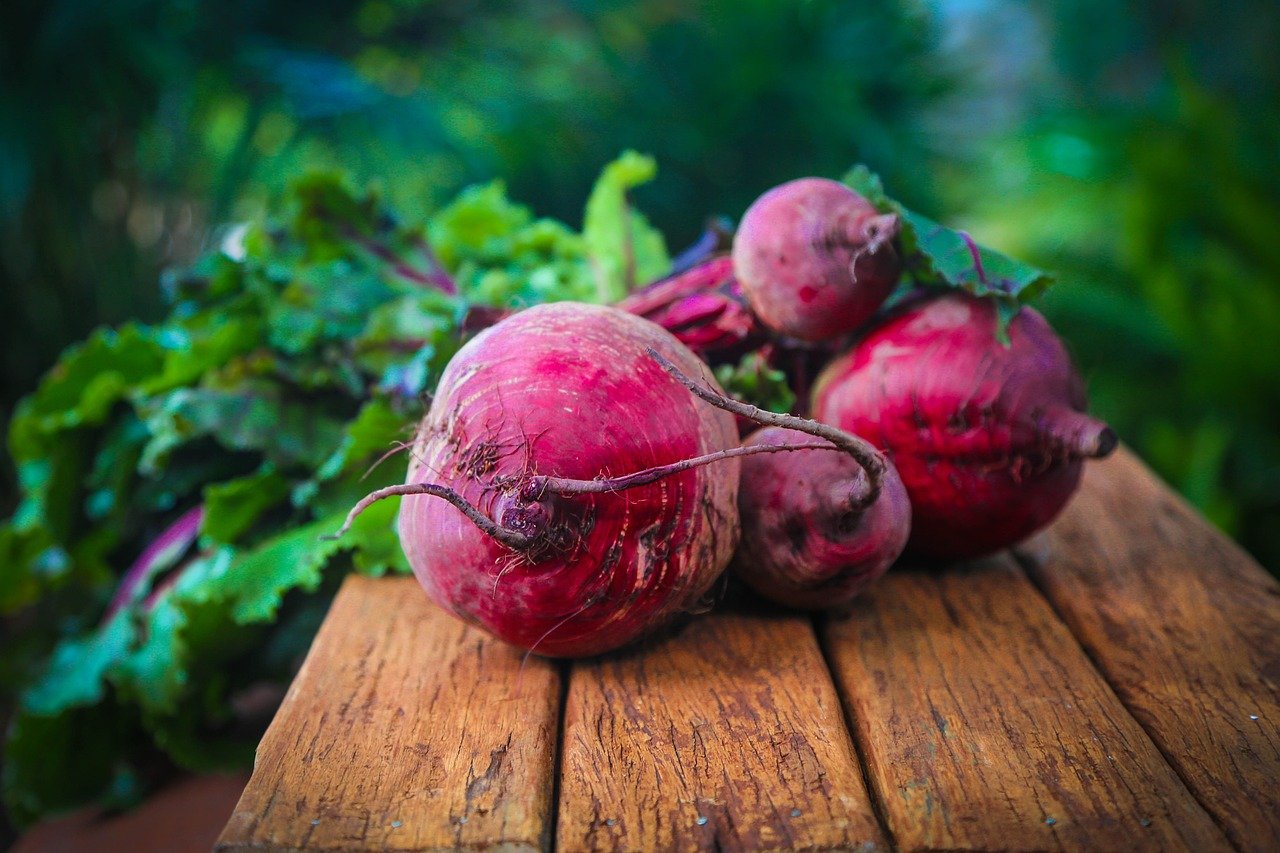Beetroot's Brilliance
Considered as one of the healthiest vegetables, it is no wonder that beetroot ranks so high. With its deep reddish/purple hues, you can be rest assured that this vegetable is jam-packed with beneficial phytonutrients and antioxidants!
Beets have long been revered for their health-promoting properties and have many uses in Traditional Chinese Medicine and Ayurveda. They have been used for cleansing the liver, improving blood circulation and calming the mind and spirit.
One important compound found in beetroot is nitrate. You may have heard about nitrates in the past and how they are harmful when consumed through products like deli meats, bacon or other low-quality packaged meats, but the type of nitrates found in whole foods like beets are actually very beneficial. Beetroots take up nitrate from soil, just like many other leafy greens such as cabbage and lettuce. In the human body, inorganic nitrate converts to nitric oxide, which relaxes and dilates blood vessels, improving circulation and cell oxygenation.
You can easily incorporate beets into your diet – adding a cup of beets to a juice, smoothie, or salad is more than enough to reap the incredible benefits this vegetable has to offer. When compared with beet benefits, drinking beetroot juice provides a more sudden boost of ascorbic acid, vitamin E, carotenes, phenolic acids and phytoestrogens to the body. This helps improve cardiac and immunity function.
Drinking beetroot juice also introduces a greater concentration of potassium than when eating the vegetable. Beetroot juice provides more nutritious value than consuming cooked beets because the heat reduces the nutrient content. Drinking beetroot juice is one of the best ways to detoxify the body – boosting the function of all bodily systems.
The Amazing Health Benefits of Beets
Here are just a few reasons to eat more beets!
1. Lowers Blood Pressure
One of the most largely studied features of beetroot would have to be their richness of dietary nitrate (which not many other foods have). Nitrates, found in beetroot and a few other leafy vegetables are converted to nitric oxide in the body. This compound relaxes and expands blood vessels, increasing blood flow, thereby reducing blood pressure. Betaine in beets also prevents the build-up of homocysteine in the blood, which can normally lead to problems with the circulatory system.
2. Cancer-Protective Antioxidants
Any simple search on the internet will come up with multiple scientific articles that have studied the effects of beets and their cytotoxic effects on cancer. It is no wonder, seeing as how beets are naturally high in disease-fighting phytonutrients, antioxidants, vitamins, and trace minerals. Particularly, betalains (categorized as betanin and vulgaxanthin) have been studied for their cancer-protective and anti-inflammatory properties. Betalains have been shown to help protect the body from developing cancers such as stomach, lung, colon, prostrate, and breast cancer.
3. Liver Detoxifier
Betaine, betalain, and pectin in beetroot all support liver function. Betaine prevents fats from accumulating in the liver to prevent fatty liver disease as well as cardiovascular disease. In regards to the liver, betaine helps reduce insulin and glucose levels, as well as triglycerides and hepatic fat. Another study found that beetroot juice protects the liver and increases the activity of phase II enzymes (meaning that it encourages detoxification by helping the liver more quickly shuttle toxins and drugs to the kidney for excretion via urination).
4. Anti-Inflammatory
This colourful root contains powerful antioxidants that fight inflammation and cell damage inside the body. Although beets as a whole fight inflammation, this is particularly thanks to their betaine compounds, which are activated within the body from a nutrient called choline (derived from B vitamins). These anti-inflammatory compounds have been found to inhibit the activity of cyclo-oxygenase enzymes, which the body uses to trigger inflammation. This effect has been found to be more effective with raw beets compared to cooked beets.
5. Brain Health
Researchers found that drinking beetroot juice can increase blood flow to the brain in older adults. Poor blood flow to the brain contributes to many disease states and is also a factor in the decline of physical and cognitive function as we age. Dietary nitrate, such as that which comes from beets, was found to improve regional brain perfusion in older adults in critical brain areas used for executive functioning. So, if you want to avoid dementia and Alzheimer’s later in life, start drinking some beet juice, your brain will love you for it!
6. Diabetes Prevention
The antioxidant alpha-lipoic acid found in beets can help lower glucose levels, increase insulin sensitivity and prevent oxidative stress-induced changes in individuals with diabetes Alpha-lipoic acid can also help reduce the nerve damage that can occur in patients with diabetes (diabetic neuropathy).
7. Hormones, PMS and Sex Drive
Different phytochemicals found in beets can help balance out hormones and increase estrogen production to minimize PMS symptoms. Beets are also high in iron and folate, which can help prevent anemia, fatigue and irritability during moon time, as well as to help regulate menstrual cycles. Not only that, but beets can help you maintain a healthy sex drive, all thanks to nitrate and boron, both of which increase blood flow to the reproductive organs. Nitrate and boron also help to regulate the production of human sex hormones!
8. Stabilises Mood and Mental Health
Beets contain tryptophan, an amino acid, which when metabolised, gets turned into serotonin in the brain. Serotonin is that feel-good “happy chemical” that makes you feel really good. Not just that, though. Beets are also high in betaine, which initiates the metabolization of a body chemical called S-adenosyl-methionine, a natural anti-depressant. So, the next time you’re feeling a little down in the dumps, reach for some beet juice!


